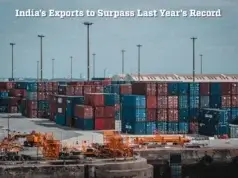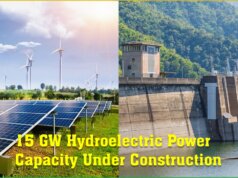The real estate and infrastructure sectors will receive a major boost if a renegotiation clause is included in contracts when awarding projects in the Public Private Partnership mode, a senior official of the Ministry of Urban Development recently opined.
Investors in infrastructure projects have for long been pushing for the renegotiation clause in contracts. The absence of such a clause often poses a major challenge, particularly when a project runs into rough weather due to unforeseen circumstances and becomes unviable. In such a case, the investor is at times left with no option but to abandon the project midway since he has no scope to renegotiate the terms.
Speaking at ‘Realty 2014’, a conference on real estate organized by the Confederation of Indian Industry in New Delhi on July 16th, Economic Advisor at the Ministry of Urban Development Anand Singh Bhal said that the renegotiation clause would help remove a major impediment to PPP projects and bridge the gap between the government’s mind set and the aggressive, ambitious strategies of the private sector.
Bhal also threw light on the measures being initiated by the government to enhance private sector participation in infrastructure projects through the PPP mode.
“Further, to encourage the industry to take up various infra projects under PPP mode, we are planning to bring in a system wherein initially just the management of various projects would be handed over to private sector and later, once industry is fully aware of the project details, full contract with terms of reference can be prepared and taken forward by the industry in a full- fledged manner. This would save industry from the losses that they might have to suffer due to asymmetric information supplied by different government departments,” he said.
Bhal expressed hope that the huge funds allocated earlier for infrastructure which could not be utilized due to incapacities at the state, district and municipal level would now be used given the focus of the new government on implementation and capacity building.
“I am very optimistic that the new government would implement the infra projects under PPP mode because Modi government feels that it is the only way to boost economy,” he said.
Bhal also spoke about smart cities. He said that since building a smart city could take between 25-30 years, the government should work to incorporate smart features in various Indian ‘brownfield’ cities and make them ‘easy and smart’ to live in through the use of Information and Communication Technologies in providing public amenities and services under the PPP mode.
“The key features could be hi tech urban transport with intelligent signaling, ticketing and tracking system, easy living with less of travel and more of mixed land use, proper water and sanitation and due importance to environment. This can however be achieved if, and only if, all stakeholders like the industry, NGOs, institutes, state and central governments, municipal corporations etc work together in one direction,” he said.
Prime Minister Narendra Modi has a vision to develop 100 smart cities in the country. These cities will provide habitation for the neo-middle class. In the Union Budget 2014-15, a sum of Rs. 7,060 crore has been allocated in the current fiscal for developing such cities. Also, in order to encourage the development of smart cities, the requirement of built up area and capital conditions for FDI has been reduced from 50,000 sq. m. to 20,000 sq. m. and from $ 10 million to $ 5 million respectively with a three-year post completion lock in period.
A city is considered smart when investments in human and social capital and traditional (transport) and modern (ICT) communication infrastructure fuel sustainable economic growth and a high quality of life, with a wise management of natural resources, through participatory governance (Caragliu et al. 2009).











